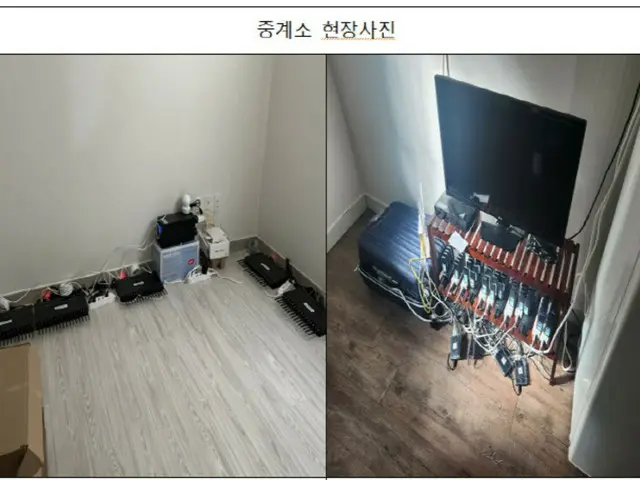The Seoul Eastern District Prosecutor's Office voice phishing crime government joint investigation team is facing charges of membership in and activities in criminal organizations, fraud, and violation of the Telecommunications Business Act.
It was announced on the 20th that a total of 21 members of a multinational repeater management organization were arrested, and all of them were arrested and charged. The organization was organized by the top of the organization (also known as GOLD) from May last year to March this year.
After joining the voice phishing repeater operation criminal group, he worked as a reward payer, parts storage manager, repeater manager, money exchanger, etc.
He is accused of defrauding 170 victims of a total of 5.4 billion won (approximately 600 million yen) by pretending to be a financial institution and offering them ``accounts related to crime'' and ``low-interest loans.'' There is.
According to the investigative team, the organization has increased the number of calls made by international calls and Internet phone numbers (numbers starting with 070) due to heightened public awareness of voice phishing.
Knowing the fact that people rarely answer the calls, they installed a ``call number falsification repeater'' in Korea that falsifies the call number of a mobile phone in order to use the domestic mobile communication network phone number (010) in the crime.
I found out that it was installed. The investigation team uncovered 11 relay stations disguised as general one-room facilities, four parts storage areas, and other locations, including 1,694 relay stations (784 lines) with altered calling numbers, and mobile phones.
8,083 USIM cards, 443 mobile phones, 121 computers, and 193 routers were seized from the crime scene, and the crime was stopped. One month of use of 784 repeater lines that have been discontinued
The cost was 700 million won (approximately 79 million yen), and the tools of the crime, including repeaters and cannon USIM cards (USIM cards in someone else's name), were worth approximately 15.6 billion won (approximately 1.7 billion yen).
According to the investigation team, the leader of the organization was a Korean-Chinese (Korean ethnic group) who recruited members in South Korea through Facebook and other internet sites, and then used Telegram to instruct them to carry out the crimes.
The organization's members in South Korea are from China, Thailand, South Africa, and Haiti, and most of them are illegal immigrants or refugees who cannot find jobs in the country.
In addition to the repeater manager, the organization is divided into money exchanger, remuneration provider, parts storage manager, USIM storage manager, parts delivery, etc.
It had become a business. They were responsible for important tasks depending on the length of their involvement, and were paid between 500,000 and 1 million won per week depending on their work.
An investigation team official said, ``Voice phishing organizations based overseas will continue to
While continuing the investigation into the operation of domestic repeaters, Cannon USIM, and Cannon Passbook, which enable crimes to be carried out overseas, we will also advance strong investigations into the operational organization of Cannon Passbook and preemptively block voice phishing crimes.
"We will do our best to protect the public from voice phishing crimes, such as by proactively responding to new and evolving methods."
2024/03/20 11:58 KST
Copyrights(C) Edaily wowkorea.jp 85

